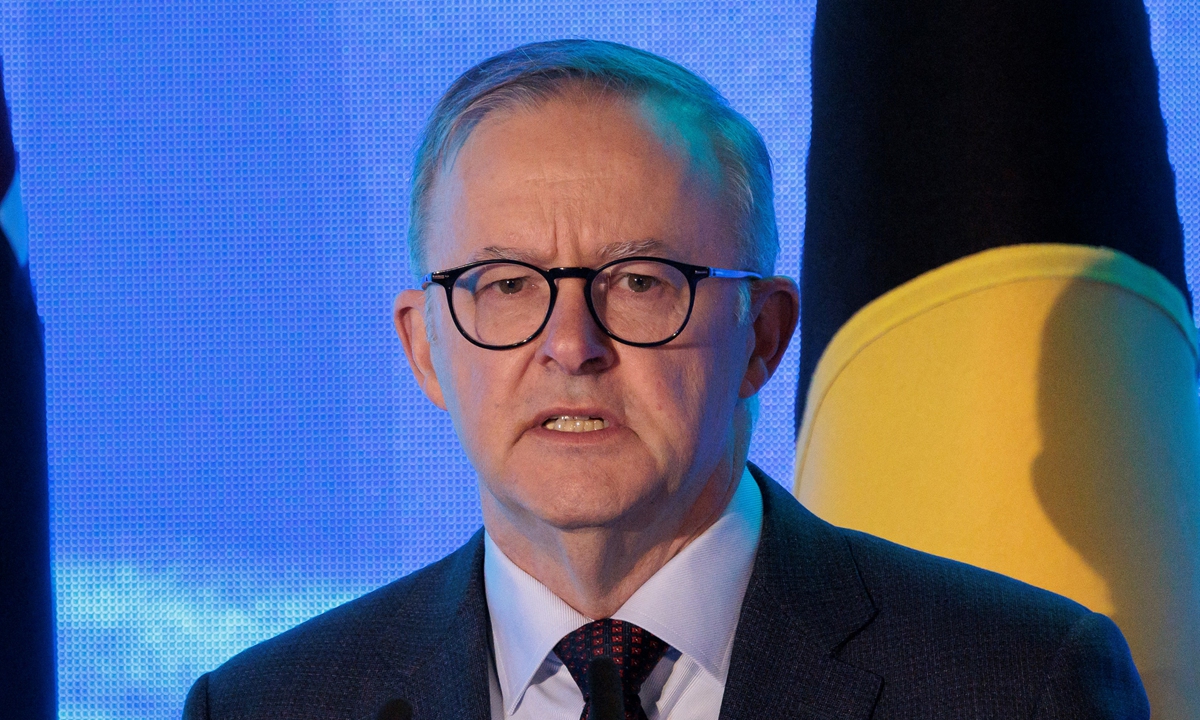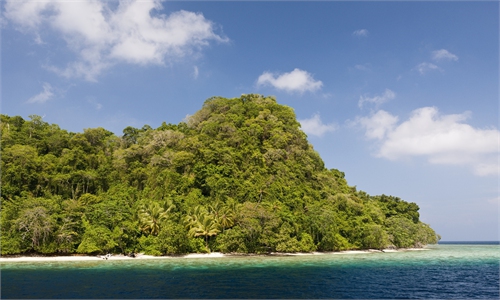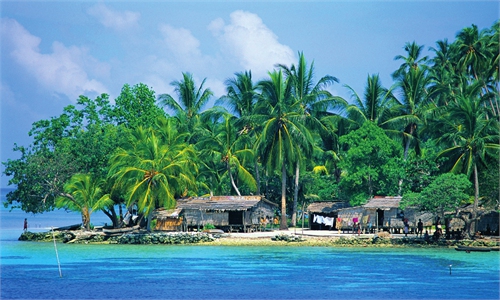Australia’s review of Defense Force shows military ambitions, concern over US’ decline

Australian Prime Minister Anthony Albanese. Photo: AFP
Australian Prime Minister Anthony Albanese announced the first strategic review into the Australian Defense Force in a decade in Canberra on Wednesday, saying it will study how to best position the military "to meet the nation's security challenges over the next decade and beyond," according to media reports.It's not common to see Australia to review its Defense Force, and the last time was in 2012.
"Australia is not satisfied with just performing defensive tasks in the South Pacific. Instead, it wants to expand to the entire Indian Ocean, and the Pacific, especially the Western Pacific, to show its long-range strike capabilities, in a bid to demonstrate its military influence," said Wei Dongxu, a Beijing-based military expert.
"The context in which this review takes place is well known," Albanese said, "We live in an era where there's strategic competition and increased tension in our region, and where China has taken a more aggressive posture." Such remarks was apparently confounding black and white. It is the US and some of its close allies, which have repeatedly attempted to cross the red line on China's core interests, rather than China, that have complicated the regional security situation and triggered tensions.
The truth is that "China threat" is just an excuse. Australia has its military ambitions. It is not willing to stay out of the mainstream of international affairs, which can explain why it closely follows the US on regional hotspot issues to grab public attention.
In terms of Australia's overall military strategy adjustment, including the outward-looking and aggressive strategic turnings, the country is on the one hand, coordinating with the US, while on the other, pursuing its own strategy. Australia hopes to become a major power through developing its own military might, and showcasing its military muscle.
Australia believes that with the regional situation becoming tenser, there are two paths for its own strategic ambitions to be realized. One is to develop and upgrade the Australia-US alliance, and the other is to enhance its own defense independence and strategic autonomy.
The review into the Australia Defense Force embodies that Australia is trying to do both at the same time.
According to experts, after the review, Australia will likely increase its purchase of US weapons and military equipment and ramp up its defense expenditure. Canberra may deploy more troops abroad and take advantage of regional hotspot issues to strengthen its ties with the US. It is even likely to directly trigger a conflict. This will undoubtedly create a security dilemma in the Indo-Pacific region and poses a threat to the entire region.
A report by the Wall Street Journal said, the review reflects "concerns among some US allies that the growing US-China rivalry is increasing the risk of armed conflict in Asia and the Pacific." Xu Shanpin, an adjunct researcher at the Center for Australian Studies, China University of Mining and Technology, believes such a view is rational.
Although Australia's defense development is largely to coordinate with the US Indo-Pacific Strategy, at the same time, Australia has to consider the relative decline of the US. In addition, the US is a global hegemon, and its projection across the world may cause the US to be trapped in certain regions. If there is a military conflict in the Indo-Pacific, the US has no ability to ensure the security of its allies, so Australia needs to improve its own military strength to cope with such a situation.
Many media outlets noted that Pelosi was visiting Taiwan on the same day that Albanese announced the review of the defense forces. Xu said that the Australian government should have been planning the review of its defense forces for a long time, but the coincidental timing with Pelosi's visit to Taiwan is quite subtle.
The author is a reporter with the Global Times. opinion@globaltimes.com.cn


